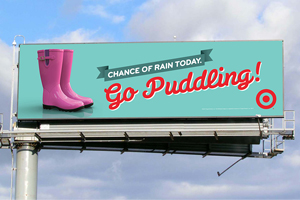Digital Billboards – OAAA

Digital billboards offer static messages that rotate every few seconds with typically six to eight advertisers sharing the same location. Ad messages change every six to eight seconds.
Mục lục bài viết
PRIMARY USES
Digital billboards provide high impact and exposure in a wide range of markets.
AVAILABILITY
Digital billboards are available in many states and communities. Contact individual plant operators for availability.
RESEARCH/MARKET INFORMATION
TAB OOH Ratings are the official measurement system. Reach and frequency can be calculated using several accepted media software programs.
METHOD OF PURCHASE
Digital billboards can be purchased by specific location or a network of multiple locations, which may be offered by individual plant operators. Digital billboards can be contracted for periods ranging from one week to several weeks.
Digital billboards are a flexible format. Advertising messages can be changed weekly, daily or even hourly. Creative strategies can tell a story or communicate numerous details using multiple design layouts. Dynamic content works by first using a base creative designed with consideration of space for dynamic content (either text or imagery). Then, the dynamic content is selected from a client’s website and pulled from the HTML source directly. The source data is incorporated into the base creative and updates whenever the client source changes – keeping the content timely and relevant.
SPECIFICATIONS
Overall Size
Digital billboards resemble standard bulletins and posters. For this reason, the overall dimensions are the same as conventional billboards.
PRODUCTION
Art files are very small and there are no production or installation charges for digital billboards. The preferred file size will vary depending on the size and dot pitch of the unit. Contact your vendor for specific file sizes prior to producing art. It’s a good idea to create the files at actual size. This provides the sharpest possible image by alleviating the need to “down sample” the artwork before use. Down sampling will cause the image to become pixelated and hurt the overall impact of the design. Designing at the actual pixels’ density will also limit use of extremely small type. If it can’t be read at actual pixel size, it can’t be read from the street. The preferred file formats are .psd, jpg, tiff, or bmp saved at 72ppi in RGB color mode.











